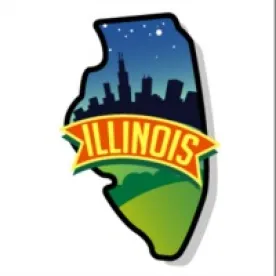On August 30, 2016, following a one day bench trial, Cook County Circuit Judge Thomas Mulroy ruled in favor of Treasury Wine Estates (“TWE”) in Illinois False Claims Act (“Act”) litigation filed by the law firm of Stephen B. Diamond, PC (“Relator”). Relator alleged that TWE had violated the FCA by knowingly failing to collect and remit Illinois use tax on the shipping and handling charges associated with its internet sales of wine shipped to Illinois customers. State of Ill. ex rel. Stephen B. Diamond, P.C. v. Treasury Wine Estates Americas Company, d/b/a Treasury Wine Estates, No. 14 L 7563 (Cir. Ct. of Cook County, Ill. Aug. 30, 2016) (“Order”). The Court held that Relator failed to prove that TWE knowingly violated the FCA or that it acted in reckless disregard of any Illinois tax collection obligation.
The Court confirmed that an “extreme version of ordinary negligence” standard applies to prove that a defendant “knowingly” violated the FCA by acting in “reckless disregard” of an obligation to pay or transmit money to the State. The Order describes “[t]his standard … [as] meant to reach defendants who intentionally close their eyes, hide their heads in the proverbial sand, and do not make simple inquires which would inform them that false claims are being made.” Order at 14. The Court’s interpretation of the “reckless disregard” standard is consistent with the standard recently established by the Illinois Appellate Court in State of Illinois ex rel. Schad, Diamond & Shedden, P.C. v. National Business Furniture, LLC, 2016 IL App (1st) 150526, ¶ 39 (Aug. 1, 2016) and is very favorable for defendants defending against FCA claims. (“Significantly more than an error, mistake, or ordinary negligence is required … to demonstrate reckless disregard in the context of a False Claims Act violation. Relator … needed to prove that defendant ignored obvious warning signs, buried its head in the sand, and refused to learn information from which its duty to pay money to the State would have been obvious.”), aff’g, No. 12 L 84 (Cir. Ct. of Cook County, Ill. Oct. 23, 2014) (citations omitted).
Analyzing the evidence produced at trial, the Court held that it was reasonable for TWE to rely on third party tax consultants to prepare and file its Illinois tax returns, even though TWE did not review the returns before they were filed. The Order states:
Defendant relied on its consultants to do the job for which they were hired, to do the right thing and to be acquainted with Illinois sales tax law.Defendant relied on its preparers’ expertise, experience in the field and representations to ensure its ST-1 forms were accurate. Defendant was faced with the task of filing hundreds of tax returns in many states which have different and conflicting laws. Defendant did what a prudent business would do: it asked for help with navigating the murky waters of Illinois tax law and the challenging task of correctly preparing an Illinois sales tax return. Defendant did not intend to defraud Illinois; it intended to do what Illinois law required and sought expert help to do it. Defendant was not required to check the work of its consultants by seeking advice from other professionals. Defendant was prudent when it sought and paid for advice from companies experienced in its industry and experienced in state tax preparation work.
Order at 15.
The Court also held that the fact that TWE’s tax returns specifically disclosed that TWE was not collecting tax on its shipping charges further supported the conclusion that TWE did not knowingly violate the tax laws.
The Court rejected Relator’s argument that TWE and its advisors acted recklessly based on TWE’s participation in a voluntary disclosure application with respect to time periods prior to time periods at issue in this lawsuit, in which it paid tax on shipping charges. Evidence presented at trial established that the VDA payment was made for administrative convenience; no professional ever told Defendant that tax was due on shipping charges. Evidence was also presented that after the lawsuit was filed, the Department of Revenue advised both TWE and its third party consultant, in separate consultations, that tax was not owed on separately stated shipping charges.
Taxpayers who rely on qualified third party consultants for the preparation of their tax returns, particularly those who expressly disclose their filing practice on their returns, can take comfort from the Court’s conclusion that TWE did not violate the FCA.
The Diamond firm will have 30 days from the date of entry of the Circuit Court’s Order to either seek reconsideration or appeal from the trial court’s ruling.




 />i
/>i

